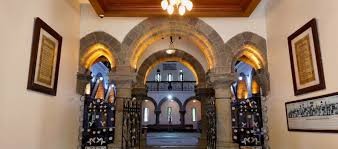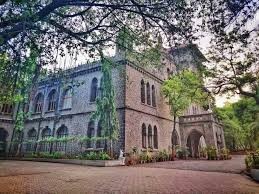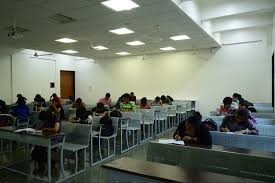COEP TECHNOLOGICAL UNIVERSITY
📘Overview of COEP TECHNOLOGICAL UNIVERSITY
Established in the era of British in the year 1854, well before any of the formal degree awarding universities took roots in India, College of Engineering Pune (COEP) now known as COEP Technological University (COEP Tech) is the third oldest engineering college in the country, and indeed in Asia, after College of Engineering, Guindy, and IIT Roorkee, having glorious history of 170 years. Started as the Poona Engineering Class and Mechanical School, it was used for training officers involved in public works such as the construction of buildings, dams, canals, railways and bridges. The school was renamed several times before it became College of Engineering, Poona (COEP), in the year 1911. It was initially affiliated to the University of Bombay for a degree of Licentiate in Civil Engineering known as LCE and later to the University of Pune. The degree programs in Civil Engineering, Mechanical Engineering and Electrical Engineering were started in 1908, 1912 and 1932, respectively. From then on, the college has gone on expanding adding new departments and new wings by the year.
🎓Courses Offered
🧠COEP TECHNOLOGICAL UNIVERSITY's Approach
- To be a student-centric institute imbibing experiential, innovative, and lifelong learning skills, addressing societal problems.
- To promote and undertake all-inclusive research and development.
- To inculcate entrepreneurial attitude and values amongst Learners.
- To strengthen National and International, Industrial, and institutional collaborations for symbiotic relations.
- To mentor aspiring Institutions to unleash their potential, towards nation-building.
🌍Program Outcomes
- Engineering Knowledge: Applying fundamental engineering principles, mathematics, and science to solve complex problems.
- Problem Analysis: Identifying, formulating, and analyzing complex engineering problems using established methods and principles.
- Design/Development of Solutions: Designing solutions for engineering problems, considering public health, safety, and societal factors.
- Investigation: Conducting research, including literature reviews and experiments, to analyze and interpret data.
- Modern Tool Usage: Utilizing appropriate techniques, resources, and modern engineering tools, including prediction and modeling, for engineering activities.
- The Engineer and Society: Applying reasoning informed by societal, health, safety, legal, and cultural issues to professional engineering practice.
- Environment and Sustainability: Understanding the impact of engineering solutions on the environment and promoting sustainable practices.
- Ethics: Applying ethical principles and adhering to professional responsibilities and norms of engineering practice.
- Individual and Teamwork: Functioning effectively as an individual, and as a member or leader in diverse teams, and in multidisciplinary settings.
- Communication: Communicating effectively on complex engineering activities with the engineering community and with society, including being able to comprehend and write effective reports and design documentation, make effective presentations, and give and receive clear instructions.
- Project Management and Finance: Demonstrating knowledge and understanding of engineering and management principles and applying these to one's own work, as a member and leader in a team, to manage projects and in multidisciplinary environments.
- Life-long Learning: Recognizing the need for, and having the preparation and ability to engage in independent and life-long learning.
| Particulars |
Statistics |
| Campus Location |
Pune, Maharashtra |
| Courses Offered |
Btech |
| No. of Seats |
1260 |
| Median Salary |
- |
| Fee Range |
INR 156,464 |


 Commonly Asked Question On Highlights
Commonly Asked Question On Highlights 



